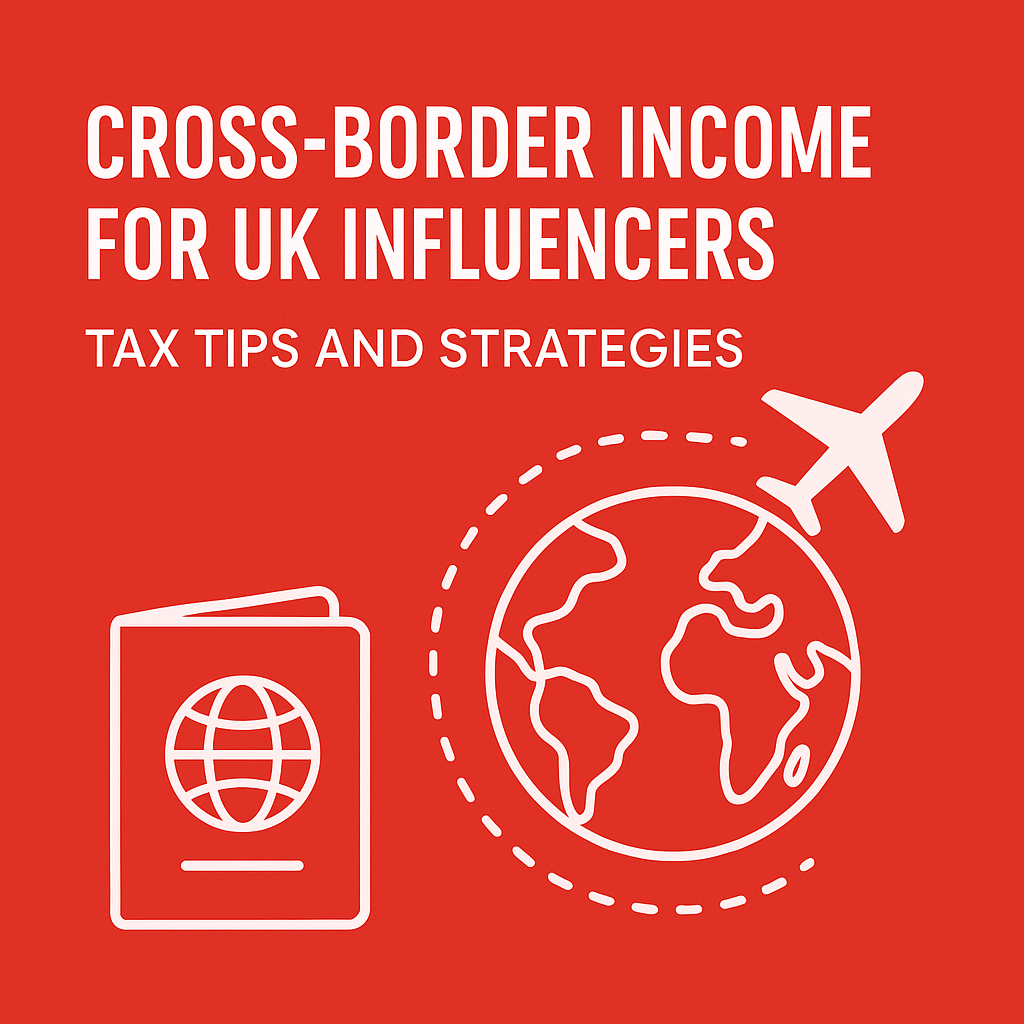Introduction
With the rise of social media, UK influencers often earn income from international brands, platforms, and audiences. However, managing cross-border income comes with unique tax challenges, including double taxation, exchange rates, and varying regulations. In this blog, we’ll guide you through managing global earnings while staying compliant with HMRC rules.
1. What Counts as Cross-Border Income?
- Payments from overseas brands for sponsored content.
- Revenue from platforms like YouTube or TikTok operating abroad.
- Affiliate marketing commissions earned from global programs.
- Royalties from licensing content internationally.
Tip: Any income earned outside the UK must still be declared to HMRC.
2. Double Taxation Explained
Double taxation occurs when two countries tax the same income. Fortunately, the UK has Double Taxation Agreements (DTAs) with many countries to avoid this issue.
How It Works:
- Pay tax in the country where the income is earned.
- Claim tax relief in the UK to offset what you’ve already paid abroad.
Tip: Work with an accountant familiar with international tax treaties to ensure accurate claims.
3. Handling Payments in Foreign Currencies
Receiving payments in USD, EUR, or other currencies can complicate tax reporting due to fluctuating exchange rates.
Best Practices:
- Convert income into GBP using HMRC’s official exchange rates.
- Keep records of the exchange rate on the date of payment.
- Consider using platforms like PayPal or Wise for cost-effective conversions.
4. VAT Considerations for Cross-Border Transactions
VAT rules vary depending on whether your client is based in the UK, EU, or elsewhere:
- UK Clients: Standard VAT rules apply.
- EU Clients (Post-Brexit): Follow the reverse charge mechanism for B2B services.
- Non-EU Clients: Services provided outside the UK are usually zero-rated for VAT.
Tip: Always consult HMRC guidelines for the latest VAT rules on international services.
5. Declaring Cross-Border Income on Your Tax Return
- Include all global income in your self-assessment tax return under the “foreign income” section.
- Use the foreign tax credit relief option if you’ve already paid tax abroad.
- Keep invoices, receipts, and proof of foreign tax payments as evidence.
6. Tools to Simplify Cross-Border Income Management
- Accounting Software: Tools like QuickBooks and Xero can handle multi-currency transactions.
- Currency Conversion Services: Platforms like OFX or Revolut offer better rates than traditional banks.
- Tax Calculators: HMRC provides tools for estimating tax relief on foreign income.
Conclusion
Managing cross-border income may seem complex, but with the right strategies and professional guidance, UK influencers can stay compliant and avoid unnecessary tax burdens. By understanding DTAs, tracking currency conversions, and leveraging tax reliefs, you can focus on growing your global presence without financial stress.





